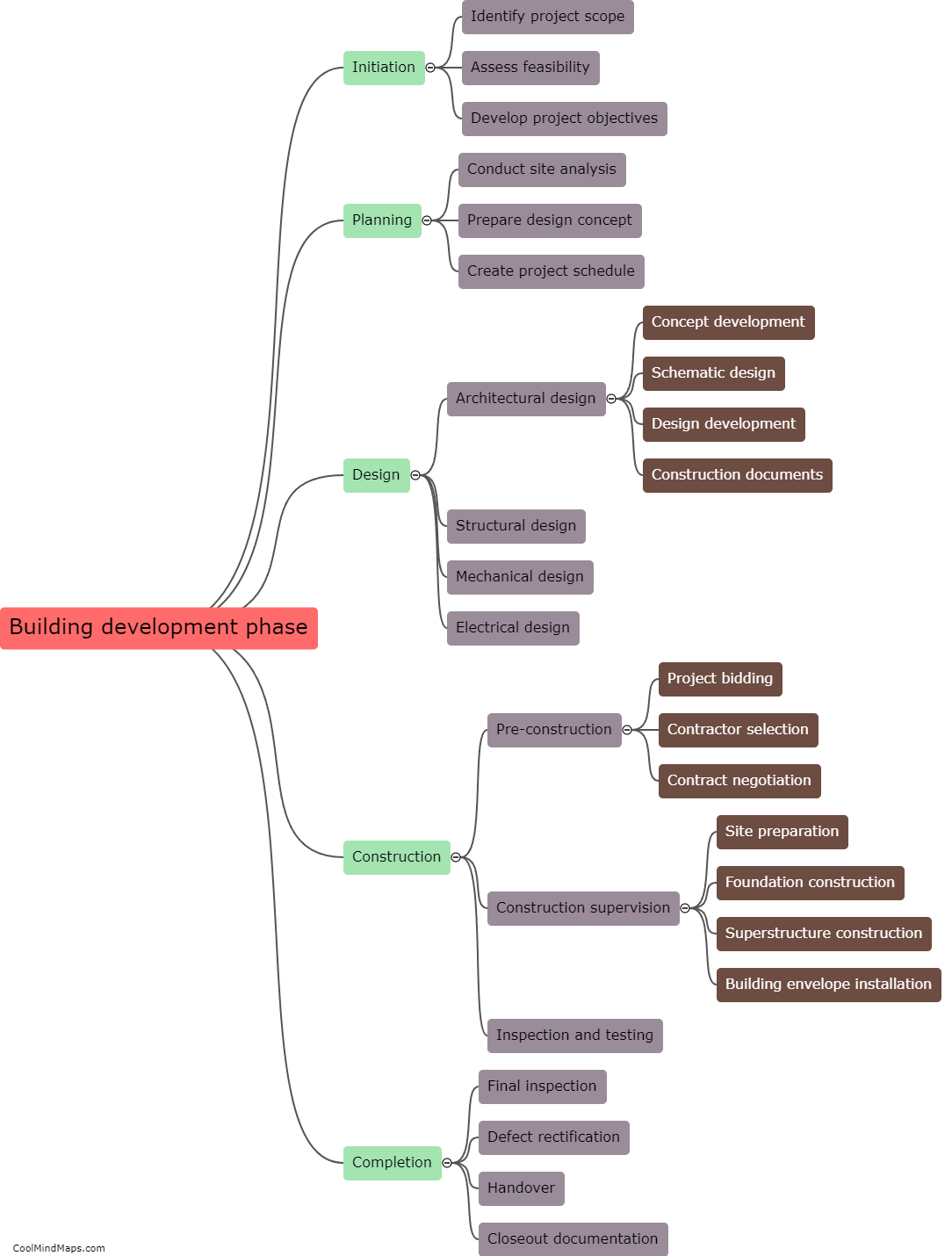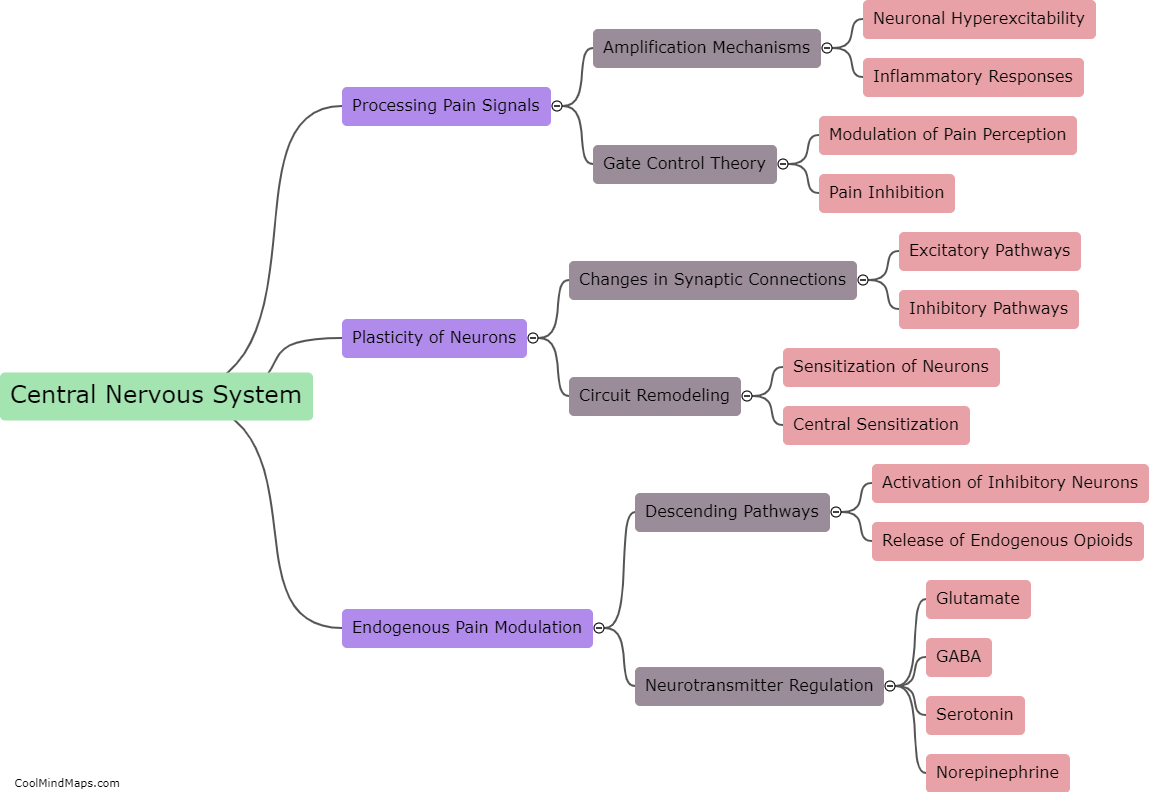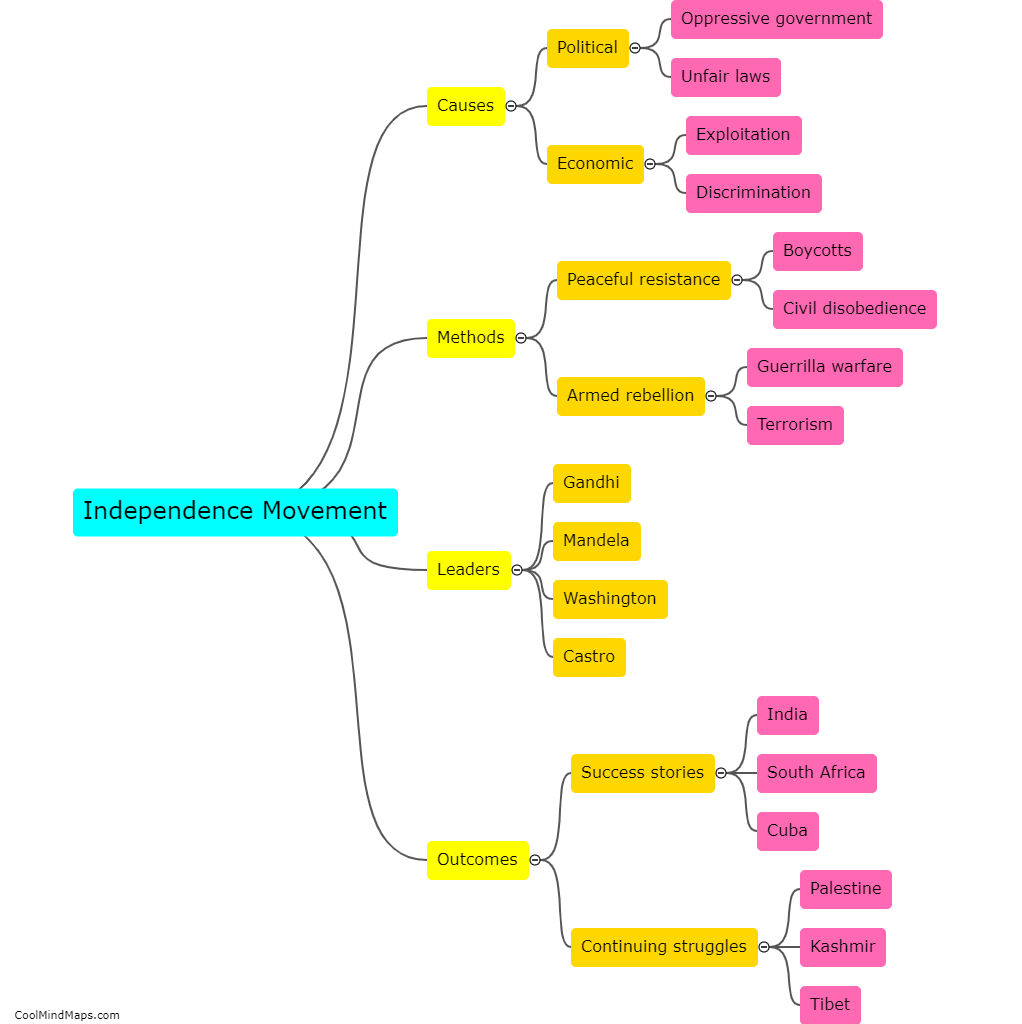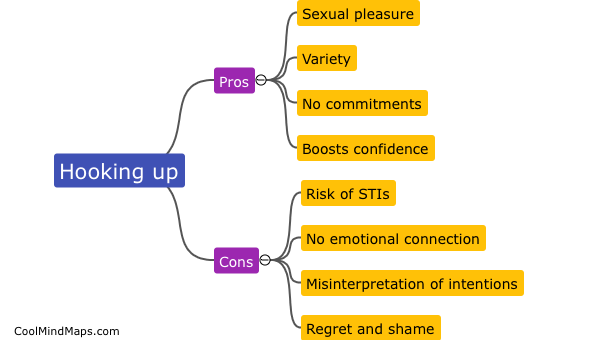Mughal Empire
The Mughal Empire was a powerful Islamic dynasty that ruled much of the Indian subcontinent from the early 16th to the mid-19th century. The empire was founded by Babur, a Central Asian prince who conquered Delhi in 1526, and was characterized by its grand architecture, rich artistic traditions, and military prowess. The empire was most famous for its rulers Akbar, Jahangir, and Shah Jahan, who oversaw a flourishing of arts and literature and commissioned such famous monuments as the Taj Mahal. However, the Mughal Empire eventually succumbed to a variety of challenges, including political infighting, economic decline, and the arrival of European powers, and was officially dissolved in 1858 when the British took control of India. Despite its ultimate demise, the Mughal Empire remains an important cultural and historical legacy in South Asia, influencing everything from Islam in the region to the modern Indian state.
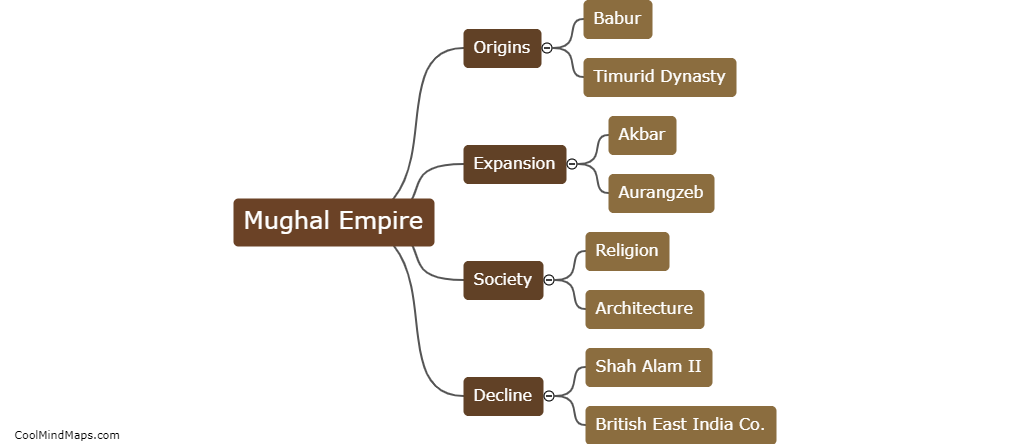
This mind map was published on 30 April 2023 and has been viewed 134 times.


